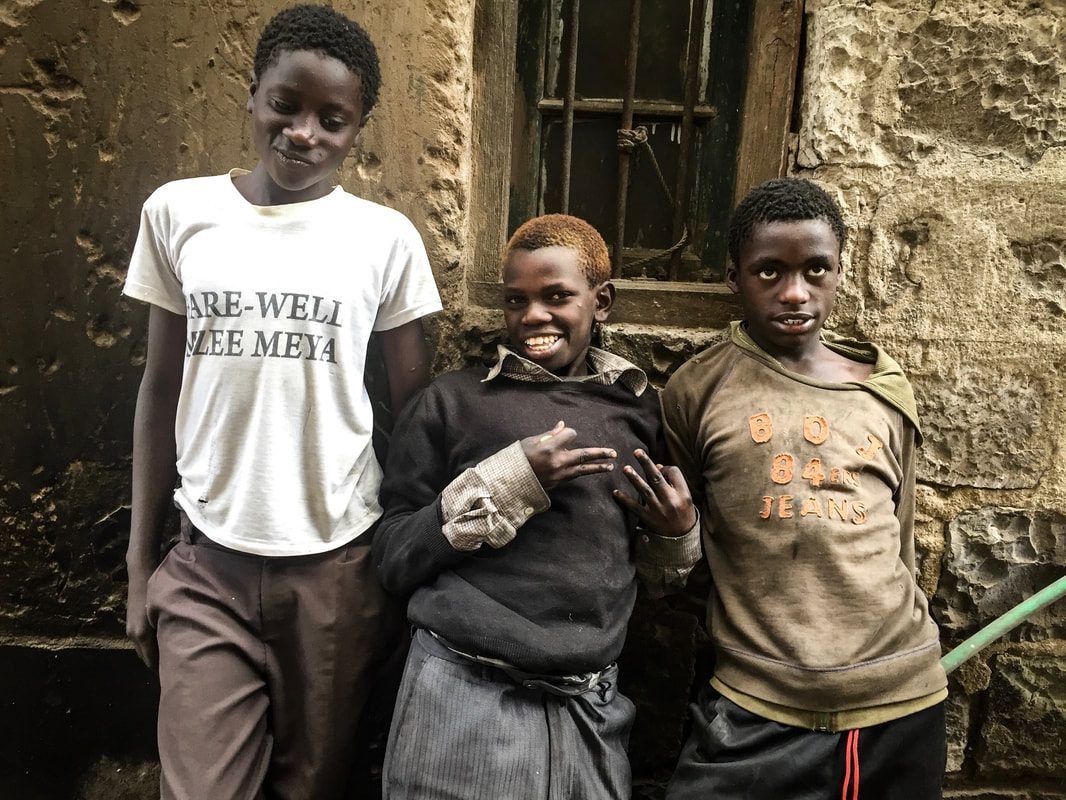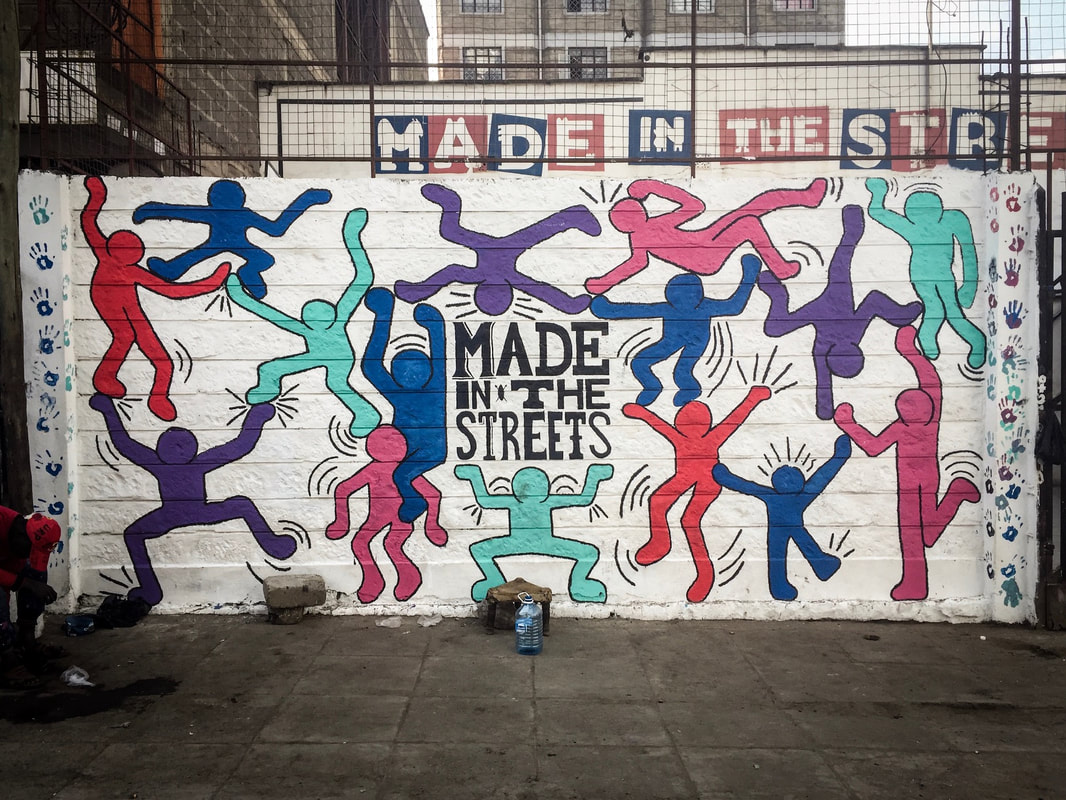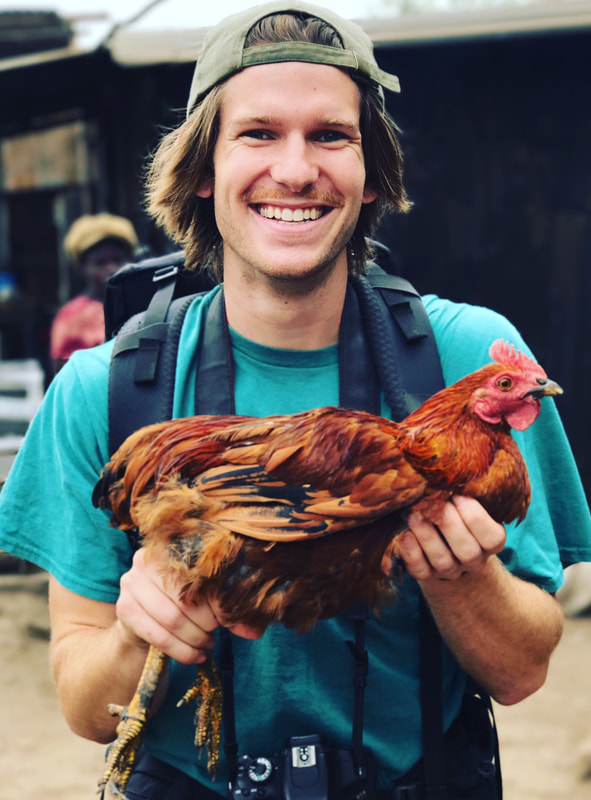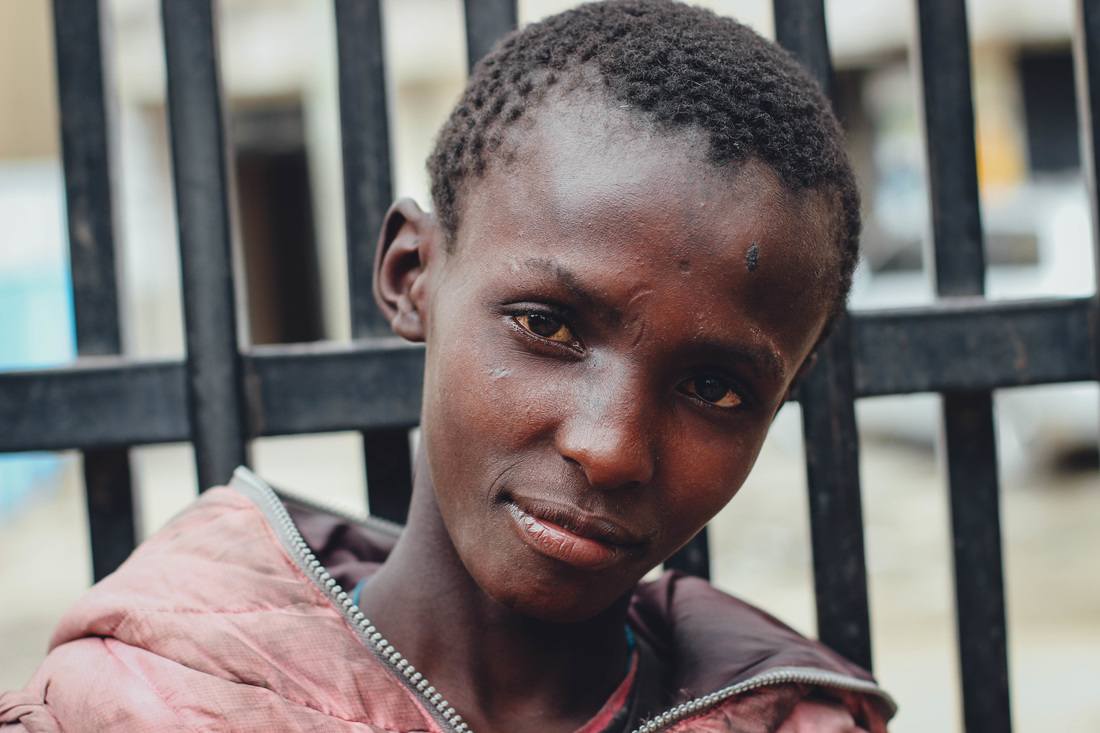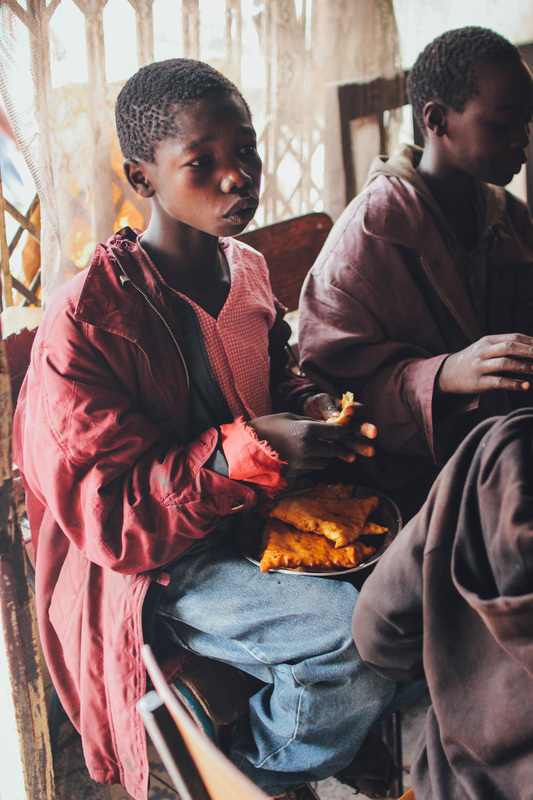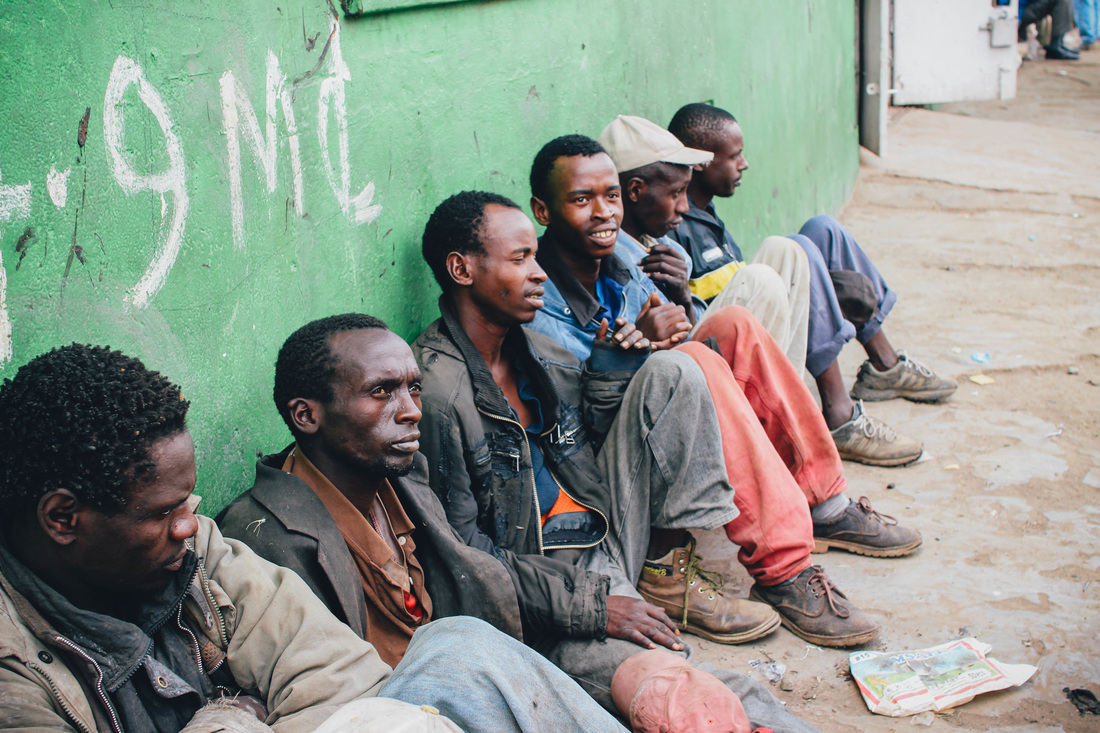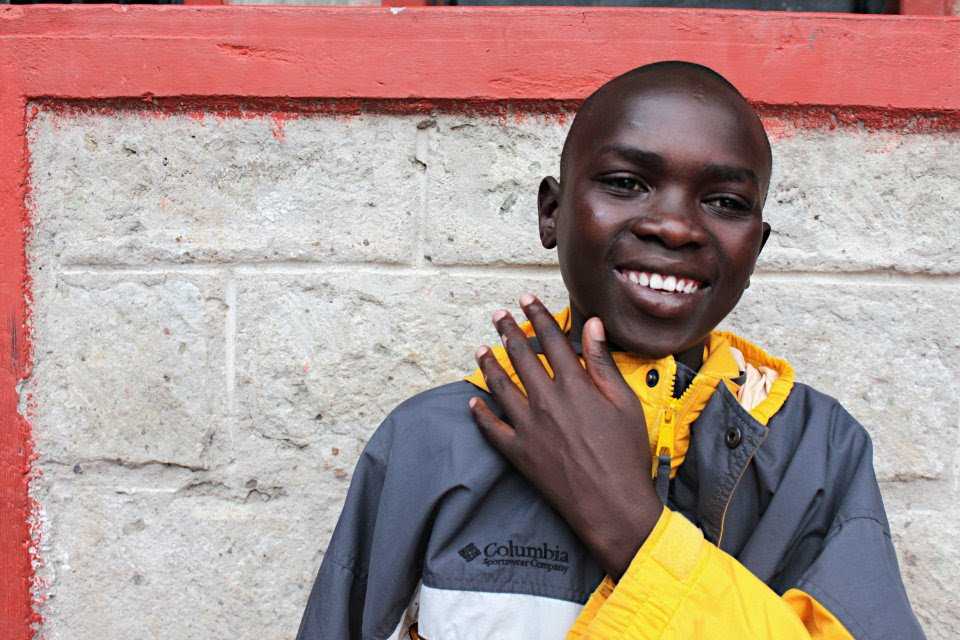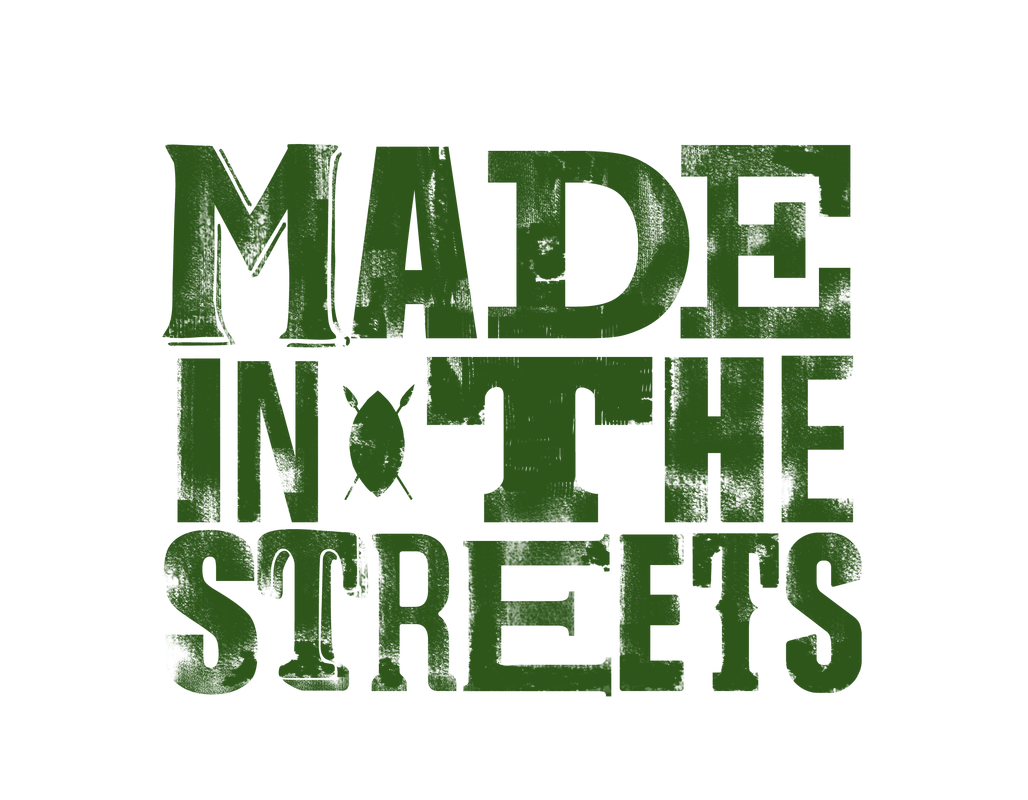|
Dr. Chad Stephens had his work cut out for him when he agreed to visit our Eastleigh Centre and provide medical aid to street kids. Many children on the streets have dire needs—gangrene, raw flesh, wounds that are three years old, cleaned and dressed, again. Due to lack of access to clean facilities or knowledge of proper wound care, they'll return to the centre with these same festering wounds multiple times. Our Eastleigh Centre staff have basic first aid training and can provide wound care, but it is rare for a doctor to visit the centre.
0 Comments
Foregoing school, foregoing an education, Quinta took to the streets to find money. Her primary begging location took place among the stopped cars of traffic jams, where people would yell at her and say cruel things. But the occasional driver would give her money. Soon, Quinta realized that life on the streets would be better than life at home. Home was where her mother beat her. Home was where her father beat her and threatened abuse when she made him angry. Home wasn’t safe. So Quinta lived on the streets with some other girls who were friends of hers. These kids introduced her to glue. Glue is a common substance used as a drug on the streets. Getting high from the glue, street kids can forget their problems; the cold, their hunger, their discomfort. When I asked Quinta about life on the streets, these are some descriptions that she gave me: “So, then sometimes there is no food in the street. There is no food, and the rain, the rain is coming and you don’t have shoes. You don’t have pullover, you are [alone], and you know when you are in base…you do not know God, and so you are like, this my life…I can survive.” “And then, then if it is night, there is no city council, and the people, if people have a car, a car like a pick up…when they see street child… if you are a girl, they will take you, and they will use your body, or the police, or they will rape you and then throw you in the water.” Sometimes, while living on the streets, well-intending policemen would take the kids to a school. This happened to Quinta during that same year, but she said that even though the police meant well, the school she was taken to was abusive: “But that school, it is not like Made in the Streets. So that school, they will beat you, they will do for you bad things, they will use you like a donkey to do work, they use you, like they beat you, they say “wash this,” “do this,” So Quinta ran back to the streets, where she stayed until, again, she was taken to a new school. This school was different than her last school. This one treated her well and was good to the students. However, because Quinta was so used to life on the streets, she often ran away to get back to her old life. “I run. Because that life of street is in me, it is in my blood. This went on for awhile. Quinta would run to the streets, they would bring her back, and she would run again. Eventually they brought her back to her mother, telling her that she had lost her chance to stay at the school.
Quinta ran from home again, this time joining a new base on the streets called Central Pack. Central Pack made her stand on the streets to beg and give whatever she gathered to the other base members. It was around this time that Quinta met the woman that would change her life forever. This womans’ name was Linda Ntinyari. Linda is a dorm mom in the girls place at MITS, but she also works in Eastleigh during the day with the street ministry team. Quinta met Linda, who gave her food, encouraged her, and asked her if she wanted to learn and get an education. Initially, Quinta refused. There were other girls in her base that saw her example and refused as well. Some time passed, and then Quinta changed her mind. She decided that she would go to MITS and learn. That she would stop using glue. That she would make a future for herself. So next time she saw Linda, she agreed to attend Made in the Streets. When she arrived, she not only found a new family among the students and teachers, but through a few MITS connections she found her birth father, whom she had never met. Unlike her step-father, he was a kind and loving man. Quinta was able to stay with him and get to know him for a few weeks before starting school, and she realized that she wanted to come back to MITS, study hard, and work to help provide for him. This is Quinta, and she has big dreams. Although her life at home and on the streets came with unimaginable hardships, she isn’t letting her past define her. Today, she can be found studying hard in her classes, making friends with the other students, using her story for God’s glory, and eating her new favorite snack—marshmallows. To learn more about how you can support and sponsor a MITS student like Quinta, click here. by Brady Bates, summer 2017 Street Ministry Intern As a street ministry intern, I spend most of my week at MITS' intake center at Eastleigh, which is a neighboring area to downtown Nairobi. An average day consist of half of our team going on base walks while the other half stays back and runs the program for the day. Bases are areas throughout the city and suburbs where street children and adults congregate and call home. A base could be anything from a tree to an abandoned plot of land in which the members of that base hang out and sleep. Between the bases, there can often times be tension and conflict over territory, drugs, food or women very similar to that of gangs back in the states. While there are a number of similarities to the gangs we may be familiar with they are far less hostile and more survival based in my experience. The best way I can explain the bases is if Neverland from Robin Williams' classic movie Hook collided with Lord of the Flies. Rather than imaginary food fights and whimsical tree forts these boys walk around with metal pipe ties as rings (serving as a make shift set of brass knuckles in case of a fight), using drugs and sleeping under old cardboard or on mounds of trash. These bases are where the heart of the ministry starts. Our team will go on a number of base walks a week in order to recruit new students into program in the hopes that God will transform their lives. An average base walk will include some chit chat with the boys followed by a lesson and words of encouragement spoken by one of our team members then a snack for the boys. With each base walk we try to encourage the boys to come to our center in Eastleigh and see what we're about. We stress to them that God loves them and we want them to know Him and for Him to change their lives. It's at this point that the seed is often planted and the ones God calls hear the message and show up. Back at Eastleigh we have programs each day that offer breakfast, Bible lessons, lunch and games. This is where we start building relationships and noticing the ones who are consistently coming and want to change their lives. We periodically have intakes of students, which primarily take place after the graduation of a class or the opening of spots due to one of the boys or girls running away. Thanks to God I was able to be a part of an intake and see the entire process. During our first week in Kamulu we had two boys run away, which left some open spots for some new students and kept our eyes opened for new candidates. A few weeks ago, the team was blessed to find a girl and bring her back to Eastleigh so she could stay at our property. Girls are extremely rare to find on base walks because they are less in number and are also either sent to work during the day or are hidden from us because of their value for sex. When we do find a girl it becomes a high priority situation and they can be brought into our Eastleigh center for protection from the Streets and all the dangers they bring. Two days after finding Linda we found another girl named Quinta who was also brought into our Eastleigh location. Over the next week we interviewed a number of boys in preparation for the upcoming intake. This was one of the hardest things I've dealt with since being here. Investing so much time and emotion into the relationships we make at Eastleigh is a beautiful thing but also brings with it the potential for heart break. I was honored to have a say as to which boys we took in. Monica and Linda allowed me to help with interviews and bring in potential boys who I thought were ready. One of the biggest benefits of my time spent at Eastleigh is the appreciation of how far the students at Kamulu have come. That alone has been worth my time there and has grown my love for those back at Kamulu that much deeper. It can be easy for me to forget where these kids come from and all the adversity they've had in order to be where they are. Seeing the bases, the influences, the hunger and the struggles they faced on the streets on a daily basis then coming back home to see how much they've grown has caused my heart to overflow with love for them. Some of them have shared parts of their stories about how they heard about MITS, why they were on the streets and the spiritual warfare and powers of evil they faced on the streets before they even reached their teens and it's absolutely humbling. I sit on my porch at night and look out on the property as the boys play soccer and cook dinner as a team and reflect on how contrasting our lives have been. I come from an upper class American family where at the age of thirteen my entire family was attending my recreational soccer league games on the weekends and never had to worry about where the next meal came from. My dad always tells me that none of us choose the cards we're dealt in life. We don't choose the parents we are born to or the place we are born but one thing we often can choose is what we do with that card. These boys and girls didn't choose to be born into broken families who's separation of parents put them on the street or lack of money caused them to have to live off of garbage and fend for themselves. They didn't choose to have no idea where their next meal came from or what their future would hold. They didn't choose to lose their parents to AIDS or be beaten and disowned by their step parents. All of those things were out of their control and given the choice I'd say most of them would rather have not had them happen. One choice they all shared was to make a change in their lives and strive for something more. They all chose to be at MITS and worked hard for the privilege to learn and pursue more than what they had been given. I've heard stories from the boys about catching a ride on the back of a dump truck and riding for hours every morning to attend the Eastleigh program and show that they really do want to change. I've seen the trash dumps that some of them had to sort through for plastics and metals at thirteen in order to provide money for their mom and siblings to eat. These kids are warriors and have overcome so many obstacles that would put me on my knees resenting the one who made me. It's by the grace of God that they were able to break free from the hardships of the streets and have an opportunity to pursue a future and learn about their Father in heaven and the love Jesus has for them. It's a great honor and blessing to be a part of this team and the lives this ministry is affecting. I want to say thank you to all who support this ministry through time, finances and prayer. Without your willingness to let God use what you have to offer this ministry wouldn't be possible. Within days of our new students arriving into program we had sponsors already lined up to support and encourage them. Praise God for you people and the hearts you have for this ministry whether you've been here or not. Keep doing what you're doing and letting God use the gifts he's given you because He is alive and working to change the lives of hundreds in powerful ways
It is the twilight of yet another busy dusk. The cars are stuck in a traffic jam and crowded in disorganized orientation. This is my hometown. Our bus is stuffy, and all windows are closed. Someone sneezes from the back. The stench is overwhelming. I use my fingers to block my nose but that is no cure. I look at the lady seated next to me, she is blocking her nose too. I feign a smile and ask her to kindly open the car windows. She instantly frowns and twist her lips in contempt then she looks away. A few moments pass, the traffic jam is still in stagnation. “The stench is too much in here, tafadhali fungua dirisha! (Please open the window!)” I yell back at her after a few moments of impatience. “Are you blind?” She replies. “Can’t you see these mongrels are all over the window? Or do you want to be robbed by their filthy hands?” she exclaims with a disoriented attitude before twisting her lips in contempt once again. Just then I look beyond the tinted window panes. I see them, the “mongrels” scattered all over the drizzling evening rain. They are carrying bags or rugs and wearing tattered clothes. Some are sniffing glue while others gazing into the windows of the cars pleading for coins. Some have fallen asleep along the alleys, maybe out of hunger or out of exhaustion. Just then the road is cleared, and the bus begins to move. The passenger seated next to the driver throws a coin through the window. It rolls over and falls in front of our bus, in the headlights I see them scramble and fight for the coin, like vultures on a carcass. It’s a game for survival, some are knocked down, some give up and some keeps fighting. The passengers are bored with this drama, it’s a typical scene in my hometown. The driver hoots in an impatient frequency but the loud sound falls on deaf ears. The scramble persists, but the driver must go. The engine is ignited and the bus starts to move. “These kids are very rude and silly, they lack manners!” Someone exclaims from the back as we drive home. That was last year. It’s the dawn of a calm Sunday, at Kamulu Church of Christ. A tranquilizing worship can be heard echoing from a distance. The title of the hymn is “Who Am I?’’ by Casting Crowns. I am part of the congregation and I meet them again! The “mongrels.” They are carrying hymn books but reading the song from within their heart. Their voices are harmonized and they are exalting Almighty for what he has done in their lives. But this time round, they don’t look filthy, their faces are glowing with precious joy. Their hair neatly kept and their clothes are well furnished. They are under the courtesy and tender care of Made in the Streets (MITS). Just then, a trigger of my past memories are evoked from my mind. My mind wanders away from the church. I remember when I saw them last year. I juxtapose these two scenarios and wonder if I am a dreamer. A sense of guilt hits my mind, was I wrong not to stand up for them? Today they look so normal and human. How come it took me so long to feel their plight? How come the passengers in that bus could not see them with this new perspective? What blocked the mind of the driver who was busy hooting and shouting at them? They are children, our children, innocent children. “Not because of who I am, but because of what You’ve done. Not because of what I’ve done, but because of who You are.” That is the chorus of the hymn, it touched my inner most heart and brought my wandering mind back to church. If you look at people and judge them, then you have no time love them. That was the message of Christ, he lived and taught us how to live with one another in harmony and eternal love. So where did all these street kids come from? Who brought them here? If we truly love them and cherish them then our streets will free them from the bondage of turmoil and slavery. When we reign in the tendency of judging these innocent souls and classifying them as “mongrels” we forget to remember who we are. But for today, the sun will rise and set both for the kids and the kings, and in the end we are all human beings dying and desperately in need for love. I am just saying. Guest post from George Asimba, MITS intern.
Our boys program at our Eastleigh Centre is our most popular program, with over fifty boys that come throughout the week! All the boys who attend are hopeful that they will one day move out to Kamulu to join us at our boarding program. This month, we had ten beds open up in our boys' dorm at Kamulu.
You may wonder how we can only choose ten out of the fifty that so diligently come. Truthfully, it's very difficult but with God's guidance we are able to see which ones truly want to abandon street life altogether. Our ten new boys have been with us in Kamulu for three weeks, eyes clear and stomachs full. Their personalities showing through. Working with former street kids, sometimes you catch yourself in disbelief, "I can't believe THEY were a street kid." Seeds are being sown and it's evident! They already are speaking more English and when asked what they think about school, you'll often hear, " It's so fun!" or "I like learning!". Hearing those words reminds us why we do what we do. |
When you do this for 27 years, you're bound to pick up a few stories and lessons along the way. Thoughts, impressions, news, and highlights from our staff, visitors, donors, students and alumni.
Archives
March 2024
Categories
All
have you
|
MADE IN THE STREETS is a 501(c)3 nonprofit organization. Federal Tax ID #20-4044723
409 Franklin Road | Brentwood, TN 37027 | ©2023 MADE IN THE STREETS | site by cecily | PRIVACY POLICY
409 Franklin Road | Brentwood, TN 37027 | ©2023 MADE IN THE STREETS | site by cecily | PRIVACY POLICY



